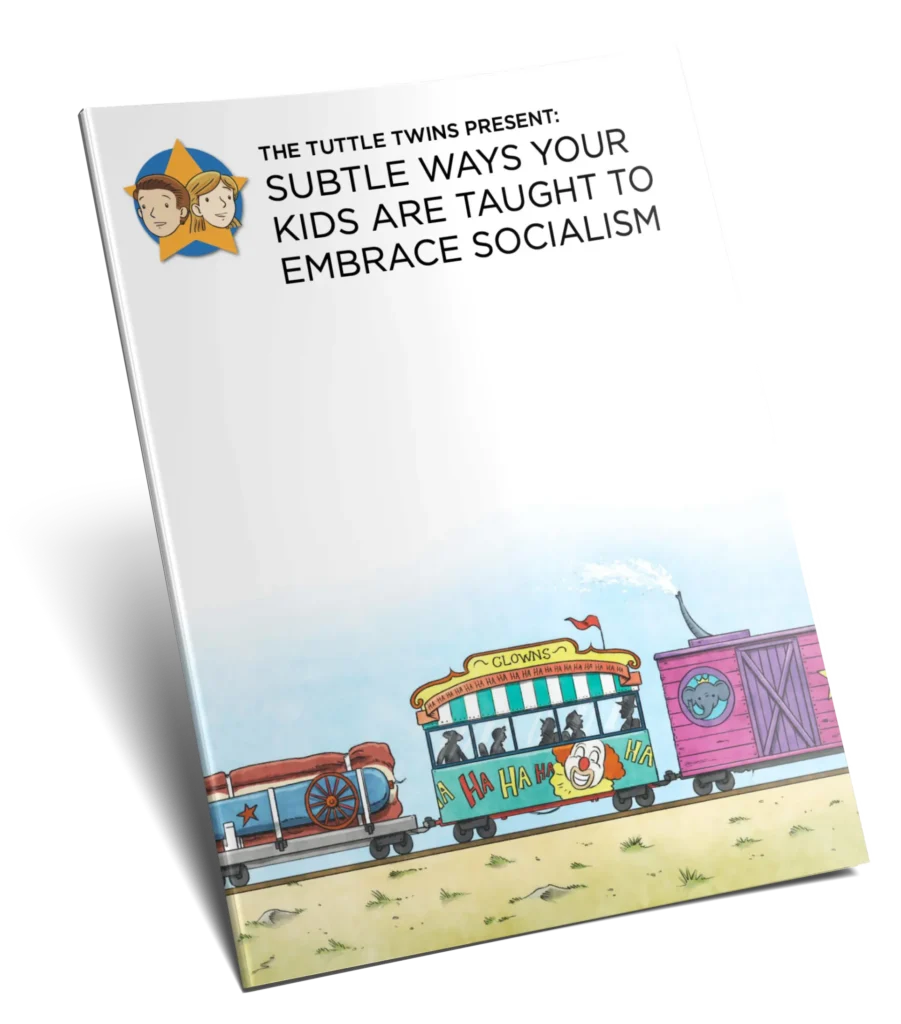SumthinWhittee
Hopefully Santa gives these out this year. Best gift to help counter the elementary school propaganda. #tuttletwins

Did we make a huge mistake by federalizing education?
The answer is yes. Here’s why:
In 1979, President Jimmy Carter established the Department of Education to promote educational excellence and ensure equal access to education across the country. However, its creation was met with pushback from many who believed that education should be a state and local issue and that the federal government should stay out of it.
Education is best managed locally, where parents, teachers, and administrators are better equipped to understand the unique needs of their students. Local control allows for a more flexible and innovative approach to education that caters to the specific needs of each community.
On the other hand, the federal government is too distant from the concerns of local communities and is ill-equipped to understand the unique challenges and needs of each school district. When the federal government dictates how education is run, it stifles innovation and limits the ability of local communities to make decisions that best serve their students.

Federalizing education has resulted in a one-size-fits-all approach to education that fails to address the diverse needs of students. The federal government has imposed a set of standards and regulations on all schools, regardless of the specific needs and challenges of each community.
For example, the No Child Left Behind Act, which was enacted in 2002, required all schools to meet the same standards for student achievement. This meant that schools with vastly different student populations and resources were held to the same standards. As a result, many schools struggled to meet these standards, which resulted in decreased funding and resources.
Federalizing education has also resulted in increased bureaucracy and red tape. Schools are now required to comply with numerous federal regulations and guidelines, which can be costly and time-consuming. This has diverted resources away from the classroom and resulted in a decline in the quality of education.
For instance, schools must comply with federal mandates regarding the education of students with disabilities. These mandates can be complicated and time-consuming, which results in schools hiring additional staff to comply with these regulations. This, in turn, diverts resources away from the classroom, which ultimately impacts the quality of education.
Federalizing education has led to an increase in the cost of education. While the federal government provides funding for education, schools must comply with various requirements and regulations to receive this funding. This has led to an increase in the overall cost of education, which is ultimately passed on to taxpayers.
For example, the federal government requires schools to provide a certain level of funding for the education of students with disabilities. While this mandate is well-intentioned, it requires schools to allocate significant resources towards the education of these students, which can be costly.

The emphasis on standardized testing has led to a decline in the quality of education. The federal government has imposed uniform standards and requirements on all schools, regardless of their specific needs and challenges. This has led to alack of flexibility and innovation in education, which is essential for meeting the diverse needs of students. Furthermore, the teaching-to-the-test mentality has resulted in a drop in the quality of education.
For example, the implementation of Common Core State Standards has led to a decrease in the quality of education. Teachers are now forced to teach to a standardized test, rather than focusing on the unique needs of each student. This has resulted in a lack of creativity and innovation in the classroom, which ultimately harms students.
Federalizing education was a mistake that has hindered innovation, limited local control, and failed to meet the diverse needs of our students.
It’s time to empower local communities to take back control of their education systems and provide students with the educational options they need to thrive. It’s not too late to learn more about the benefits of local control of education and explore alternative solutions such as homeschooling, private schools, and educational resources like the Tuttle Twins books.
Let’s work together to ensure that every student has access to a high-quality education that meets their unique needs and prepares them for success in the future.

There are many subtle ways that socialist ideas are being introduced, taught, and reinforced directly to your children.
Our e-book walks through several examples to help raise your attention to this agenda so you can help your children avoid being indoctrinated to support the state.
Hopefully Santa gives these out this year. Best gift to help counter the elementary school propaganda. #tuttletwins
When ur bedtime story teaches ur girl about the federal reserve & what a crock of crap it is. Vocab words: Medium of exchange & fiat currency. #tuttletwins for the win
“My just-turned-5 year old told me he is planning to read all the #TuttleTwins books today. It’s 10AM on Saturday and he’s already on his third. #Homeschooling ftw.”